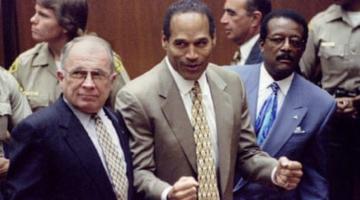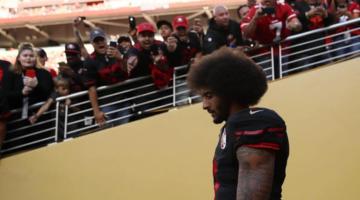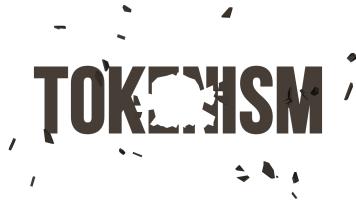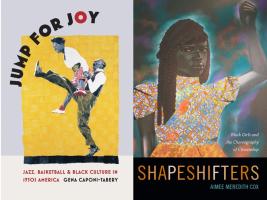Michael Oher’s story of exploitation is even worse than the white savior narrative presented by Hollywood.
When sports columnist William C. Rhoden authored his book “Forty Million Dollar Slaves: The Rise, Fall, and Redemption of the Black Athlete” in 2006, I was among many who pushed back at the mere thought that today’s multi-million-dollar athletes can in any way be compared to our enslaved ancestors. After reading the book, I came to understand the difference between an absolute comparison, (which I still do not agree with) and a relative comparison of the relationship between the enslaved to the power structure and today’s athletes to today’s power structure. There is a correlation between the Black labor generating the wealth and the White power brokers enjoying an unjustifiable profit from that wealth.
It is within that context that one should view the recently filed lawsuit by former NFL player Michael Oher, who is Black, against the Tuohy family who are white. The chaos of Oher’s early life is not in dispute. In April of 1996 at the age of eleven, he became a ward of the state of Tennessee. As such, he was placed in the foster care system by the Tennessee Department of Human Services. Over the course of nine years, Oher attended eleven different schools.
While a ward of the state, Oher started to play multiple sports, including football especially well. Keep in mind that Tennessee is in the heart of the college football obsessed Southeast Conference. If you have size and can play, you will not go unnoticed. Oher had both and not only did college football’s elite programs notice but so did the Tuohy’s. During the summer after his junior year, Oher would occasionally stay with Sean and Leah Anne Tuohy. While other parents of his teammates saw a nice kid in need, the Tuohy’s saw a gullible young man, whose athletic talent could be exploited for their own benefit and that is exactly what they did. The Tuohys’ assertion for years has been that they adopted (rescued) him from this life of instability. This assertion is an absolute lie. The Tuohy family never legally adopted him and that was the lynchpin of the relationship upon which the family started a foundation, which was the basis of the best-selling book, “The Blind Side,” and which was later made into a movie that would net actress Sandra Bullock an Oscar for portraying Mrs. Tuohy.
They never took any legal action to adopt him through the juvenile courts. They did constantly tell him that they loved him and intended to adopt him and even encouraged him to call them mom and dad. Just before his senior year, the Tuohy’s invited Oher to come live with them. Shortly thereafter, they presented him with papers that led him to believe they were to start the adoption process. In fact, the papers were a petition to apply for conservatorship which gave them power of attorney over Oher’s ability to enter contracts.
It should be noted that this was before today’s era of Name Image and Likeness (NIL) () which allows college athletes, long exploited, to cash in on revenues that they might generate. At this time, Oher’s scholarship and eligibility would have been jeopardized by entering such a contract. The red flags are the negotiations the Tuohy’s made for themselves which secured both the parents and their two natural children $225,000 plus 2.5% of all future net proceeds from the movie.
I challenge anyone to explain how any of them, especially their sons, should be entitled to over $225,000. It can be said that the Tuohy family provided Oher with room and board when he had no such thing. They certainly would not be the first to provide for an “asset” with an eye on extracting a larger return on the back end.
That was not the motive of one Emma Lewis Culpepper and her husband. They provided the same for at least fifteen children in Florida, none of whom were their biological children and would adopt Daunte when he was one day old. He would go on to become a 3-time NFL Pro-Bowl quarterback. The extended family concept among Black folks is the norm by both culture and necessity. But such a story praising Black people does not appeal to society’s obsession with white saviorism or the Black broken home narrative. The fact is vulnerability is a key component to exploitation: taking advantage of one while in a vulnerable predicament with an eye toward larger return for themselves. While the Tuohy’s claim that they have split the proceeds five ways, that cannot be determined by the routine conservator annual accounting filings because they have never made such a filing.
Michael Oher is not impoverished anymore. He made about $34 million over the course of an 8-year NFL career and has an estimated net worth of $16-20 million. However, the Tuohy family is worth an estimated $100 million. The fundamental exploitation is not the actual monetary figures. This saga sheds light on a narrative far more common in the underbelly of sports and throughout the capitalist system than many care to discuss: Black labor and ill-gotten White wealth.
Daniel Snyder the former “owner” of the Washington football team recently completed the sale of the team and will walk away with a profit of about $4.9 billion. During his tenure of over 20 years, he turned one of the most respected sports franchises in the country into a laughingstock on the field and a soap opera of scandal off the field. Most of his on-field labor, as with other NFL teams, was Black.
Full disclosure: I never did like The Blind Side story even before the revelation of fraud. It is the poster child for the White Savior Industrial Complex. Saviorism is about absolution from white privilege. Which is to say that a critical mass of whites would far more prefer to see themselves in that role as opposed to an honest acknowledgment of ill gotten gains from Black labor. We can see its most extreme manifestations in the claim of would be presidential candidates claiming that Black people benefited from slavery. In that respect, the Oher lawsuit is every bit as much about the inherent flaws of capitalism as it is about the character flaws of its practitioners.
Gus Griffin is a DC area based freelance sports writer, a member of the Ujima People’s Progress Party and the Black Alliance for Peace.

















